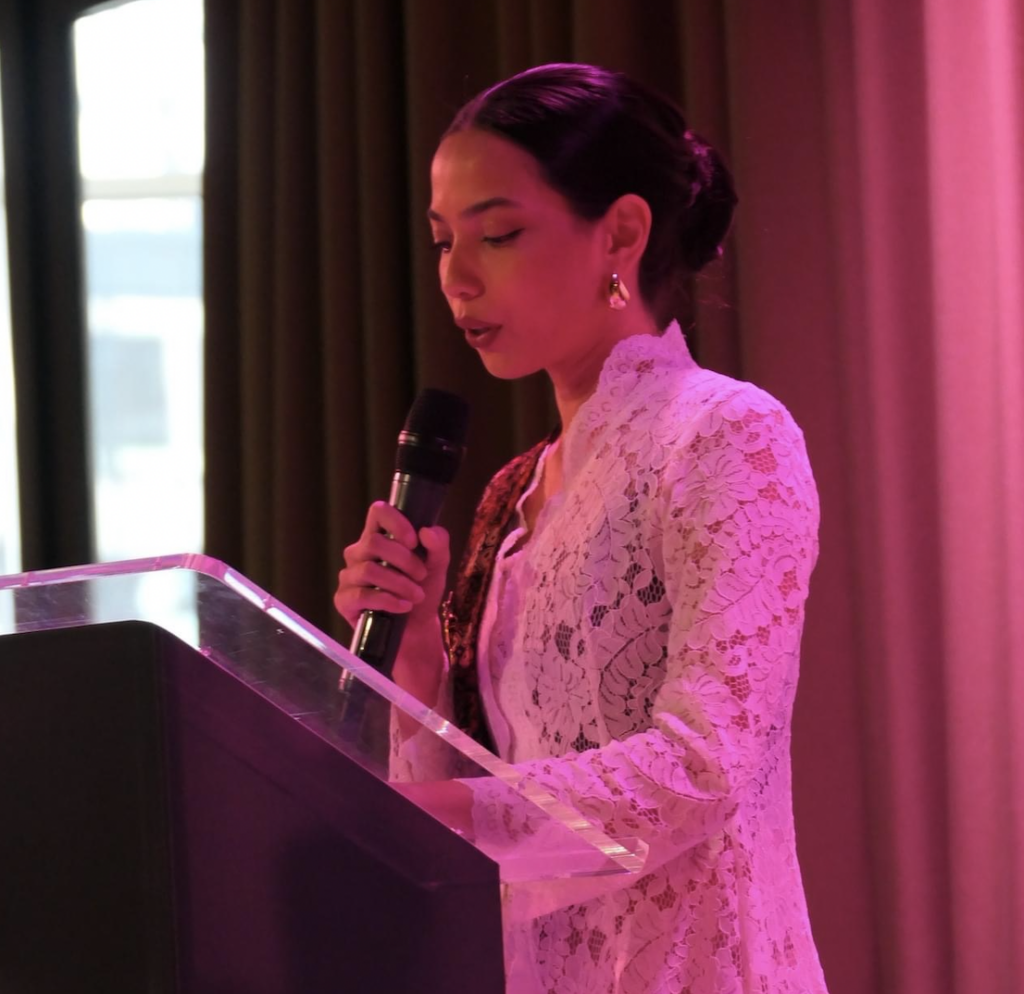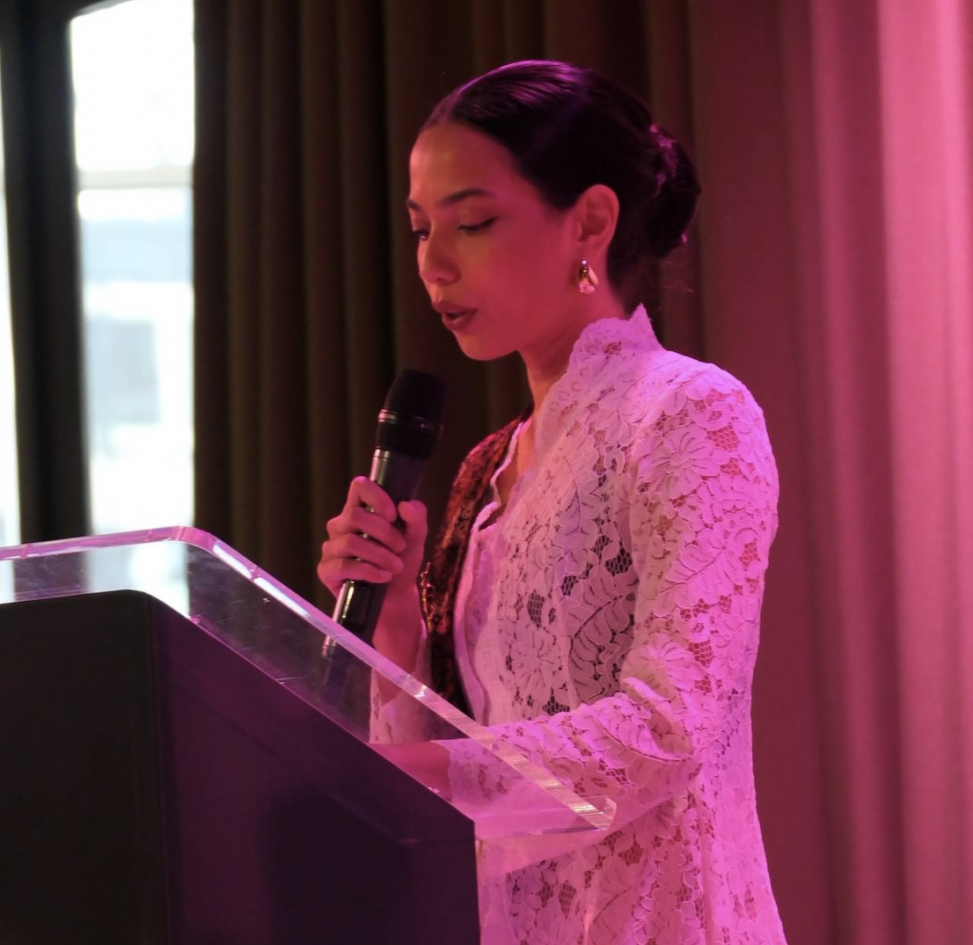This speech was delivered on Saturday, August 31, 2024, at the event ‘134 Years of Javanese-Surinamese History: Commemorating and Looking Ahead,’ organized by the Stichting Herdenking Javaanse Immigratie (STICHJI) and Stichting Javanen in Diaspora Nederland (JID-NL) at the Central Library, The Hague.
Good afternoon everyone, I am grateful that we are here together to commemorate our history and build towards our future. I understand that there are also some people present who do not have Javanese-Surinamese ancestors. We appreciate your interest in our community and warmly welcome you. The commemoration year for the history of slavery is now officially over. In this presentation, I will provide a brief overview of the past year and discuss how we would like to proceed.
Indentured Labour Collective: 3 Communities
As ibu Hariëtte Mingoen mentioned, this year the conference ‘Indentured Labour Out of the Shadows’ in collaboration with the Dutch government took place. This project consists of a steering committee representing the three indentured labour communities: the Indonesian, Chinese, and Indian communities, represented by Bikram Lalbahadoersing, Melvin Chang, and Hariëtte Mingoen. Each community had its own project group. Brandy Sanmoeradi and Wantley Sardjo were involved in the project group, and later, Melvin Toemin and I were assigned the task of preparing the two pre-sessions for the Javanese group.
An agenda will be developed from this conference. You can still contribute to the creation of this agenda, which is still in development. The main points of this agenda will be:
- Structural Research
All three groups strongly indicated the need for structural research and more knowledge. There is still little known about indentured labour and its ongoing impact. - Based on the information already available and the new knowledge that will be produced through structural research, we can move on to the second point: Strengthening Identity and Awareness of Target Groups. This is broadly defined but remains very relevant for each community, as each community has different needs and is at a different stage in the process of emancipation.
- Leadership Development among Descendants of Indentured Labourers
To implement this agenda, we need leaders from our own community. It is essential that leaders are empowered with knowledge about the history and culture of the community. Additionally, leaders must handle the significant responsibility of playing a unifying role and building towards unity and inclusivity within our diverse community. They also need to manage connections and communication with other diaspora groups and the broader society. Leadership requires integrity, various skills, and considerable responsibility. These are not things that are simply given; they are skills that must be learned and developed. By investing in leadership development, you are investing in the advancement of our Javanese community.
We expect that funding will become available this fall to realize the agenda, but this depends on approval from the government.
While these agenda items are focused on the three indentured labour communities, we have also received signals about issues that we can address internally.

Indentured Labour Collective: Javanese Community
A lot of data has been collected, and I will now share a brief conclusion that is relevant to our discussion this afternoon. This conclusion also raises new questions that we would like to discuss with you.
It has been shown that there is a great need for qualitative and structural research. Magally Mingoen will soon ask you whether you believe presenting new research results could be included in our commemorations, and also: what topics would you like to see featured in the commemorations?
Possible research topics include:
- The similarities and differences between indentured labour in Indonesia and Suriname.
- The circumstances under which our ancestors were displaced to Suriname.
- The position and imagery of Javanese women.
- The impact of the colonial past and intergenerational trauma.
- The role of Javanese resistance heroes on the plantations. Having common heroes can promote a sense of unity and a strong collective identity.
Other potential research themes:
- The Javanese-Surinamese community after the period of indentured labour, and the representation of Javanese people in society.
- The impact of migration on the community, including brain drains to Indonesia, the Netherlands, and French Guiana, and the consequences for family members left behind in Indonesia and Suriname.
There are thus many research questions that are important for our community. It is also essential that Javanese researchers are involved in this process so that we can build our own narrative and ensure that our stories are not defined by others.
Interactive Meetings
In addition to the need for research, it has also emerged that there is a need for more interactive meetings that promote our self-awareness and collective identity. The segment with Magally later will have an interactive character based on this feedback; we really want to know what is important to you and how we can strengthen our sense of unity during our commemorations and meetings.
In line with this, I am pleased to announce that STICHJI and JID-NL will organize an event for the Javanese-Surinamese community, in collaboration with the National Coordinator for Combating Discrimination and Racism. This will be a wonderful and interactive opportunity for us to share each other’s experiences and perspectives. Compared to other diaspora groups, we have not been very vocal about issues such as discrimination and racism. This event will provide a safe space for internal discussion and listening. The location and invitation details will follow.
Digital Archive and National Monument
Additionally, two specific ideas for facilities have emerged: a central repository for our knowledge in the form of a digital archive. This would increase the accessibility of information and ensure sustainable storage of our history and completed research.
The second idea is a National Monument. Currently, we do not have a central place for our commemorations. While local commemorations are valuable and important, there are Javanese people who, for example, do not live in the metropolitan area or come from large cities. A central location for our commemorations would also enhance our visibility and make it easier for our community to be found.
I want to emphasize that these last two points are still just ideas, and no processes have been initiated to realize them. These ideas require significant coordination, consensus, and collaboration so that we can contribute to the future of the next generation in a sustainable way.
Mentimeter: How Do We Want to Commemorate?
Now that we have reflected on the past year, we would like to work together with you to shape the future. Today, we specifically focus on how we can develop an inclusive commemoration where everyone feels at home and represented. We want everyone to feel heard. What are your needs? Can we reach a consensus?
If the Dutch government responds to our agenda items and structural research is conducted, what will we do with the new insights? Should there be space for this information during our commemorations, and what should that look like?
And what about the cultural and artistic aspects? Should we focus on traditional Javanese culture, or are we also open to modern and alternative art forms? The Javanese-Surinamese community is rich in talent. How can we enhance the quality of our commemorations? We would like to hear from all these talented individuals. Mention each other, praise each other, support one another. When we uplift each other, we also uplift ourselves.
What else should be part of the commemoration? What should the ritual aspects look like to truly reflect who we are? And how should the ritual elements encompass our spiritual and religious diversity within the community? I encourage you to be honest about your needs, but it is also important for us to know if there are issues on which you disagree.
Building towards an inclusive and collective commemoration is a challenging task, and we invite you to think along and contribute to creating a commemoration that strengthens us as a community. Next year, we will commemorate 135 years of Javanese-Surinamese history, and we hope it will be a special and successful year.
As ibu Hariëtte mentioned in her opening speech, the new generation of Javanese born in the Netherlands is searching for their identity. I am pleased that there is recognition from the older generation that we deserve space to discover and create both our individual and collective identities. This recognition means that we will eventually need to take over from the older generation to keep our heritage alive. As the younger generation, we need to do this in connection with the older generation. Before I conclude my introduction, I want to reiterate how grateful I am that you are all here today to have this discussion.
—
